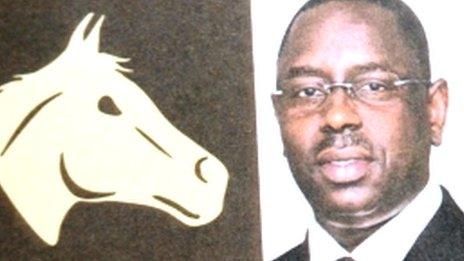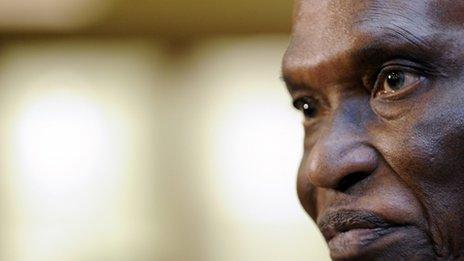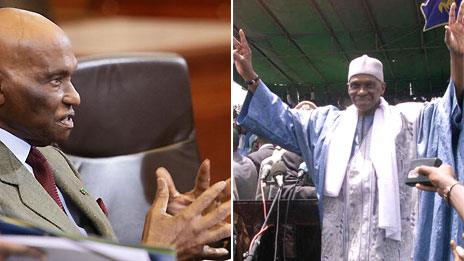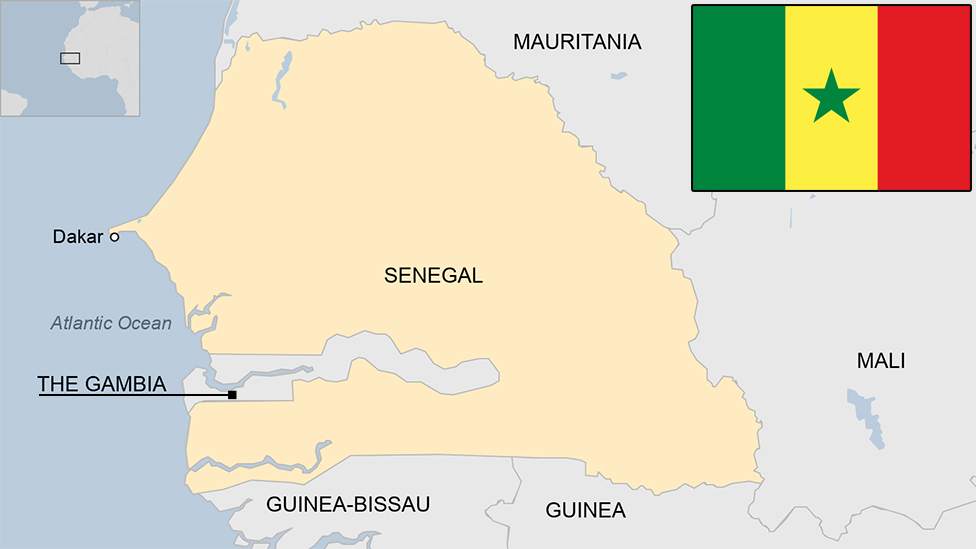Senegal's President-elect Macky Sall hails 'new era'
- Published
- comments
People on the streets in Dakar celebrate Senegal's election result
The winner of Senegal's presidential election, Macky Sall, has said the poll marks a "new era" for the country.
He was speaking after his rival, current President Abdoulaye Wade, admitted defeat in Sunday's run-off.
Mr Wade's bid for a third term in office sparked violent protests which left six people dead.
Speaking in front of thousands of cheering supporters in the capital Dakar, Mr Sall, 50, promised to be a president for all Senegalese.
Official results from Sunday's election are expected within two days.
'Model of democracy'
President Nicolas Sarkozy of Senegal's former colonial ruler, France, hailed the result as being "good news for Africa in general and for Senegal in particular".
"Senegal is a major African country and a model of democracy," he said.
The election comes just days after a military coup in neighbouring Mali.
Senegal remains the only country in West Africa to have never undergone a coup.
Thijs Berman, the head of the European Union observer mission to Senegal, said the results were very clear - about 65% for Mr Sall and 35% for Mr Wade so "there is no hesitation as to who is the winner".
Mr Sall stressed that the people were the main winners in the poll.
Mr Wade had "phoned his rival Macky Sall at 21:30 GMT [on Sunday] to congratulate him after the first results showed him to be the winner of a presidential run-off," the Senegalese Press Agency said.
Mr Wade, 85, has governed Senegal for 12 years.
Even before Mr Wade's concession, thousands of Sall supporters began celebrating on the streets of Dakar.
They chanted "Macky president!" and "We have won!"
Former allies
Mr Wade brought in a two-term limit for presidential office, but argued that the limit should not apply to his first term which came in before the constitution was changed.
His argument was upheld by the constitutional court in January, prompting widespread protests in which six people died.
In February's first round, Mr Wade fell short of a majority, polling only 34.8%. Mr Sall came second with 26.6%. But most of the other 12 candidates backed Mr Sall in the second round.
Mr Sall owes his political career to Mr Wade, and had held several ministry portfolios before becoming prime minister, the BBC's Thomas Fessy reports from Dakar.
But the two men fell out over the handling of public spending by Karim Wade, the president's unpopular son, whom many believe has been trying to succeed his father, our correspondent adds.
Mr Sall has promised that, if elected, he will shorten the presidential term to five years from the current seven, and enforce the two-term limit. He has also promised to bring in measures to reduce the price of basic foodstuffs.
The new leader also faces the difficult task of tackling rising unemployment in the country, our correspondent says.
- Published26 March 2012

- Published26 March 2012

- Published31 January 2012

- Published9 July 2024
